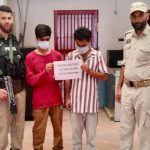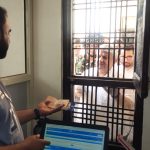SRINAGAR, JULY 05: In response to a recent statements made by PDP leader and former Chief minister Mehbooba Mufti, the government has clarified and refuted her false allegations regarding the Pradhan Mantri Awas Yojana (PMAY) scheme in Jammu and Kashmir.
Meanwhile, in a statement issued here today, the government has provided a detailed account of the scheme’s implementation and also addressed Mufti’s misconceptions.
Under PMAY Grameen Phase-1, which commenced on April 1, 2016, a total of 2,57,349 houseless cases were identified in J&K from the SECC 2011 data. After thorough verification by Gram Sabhas, 1,36,152 cases were sanctioned for housing under the commitment of “Housing for all by 2022” made by the Prime Minister Narendra Modi.
In a statement, it was stated that the scheme provided a per-unit assistance of 1.30 lakhs per house, with a minimum prescribed size of 1 marla. To ensure comprehensive coverage, the government conducted the Awaas survey from January 2018 to March 2019, aimed at identifying beneficiaries who may have been left out from the 2011 SECC. The data captured through this survey was utilized to bridge the gap between the overall target and eligible beneficiaries from the SECC Permanent Wait List (PWL).
“PMAY Phase-II (AWAS Plus) Grameen, initiated in 2019 based on the 2018-19 survey conducted pan India, recorded 2.65 lakhs houseless cases in J&K. However, the target for J&K was set at 63,426 houses, which were sanctioned in 2022,” the statement added.
Notably, on May 30, 2023, an additional 1,99,550 PMAY AWAS PLUS houses were sanctioned as a special dispensation, considering J&K’s commendable performance in sanctioning and completing houses. This step was taken to ensure housing for all the 2.65 lakhs houseless persons, who were part of the PWL 2019.
The survey for identifying beneficiaries followed clear guidelines based on specific criteria, including all houseless individuals, those residing in zero, one, or two-room kachha houses, and multi-layered prioritization as defined in the scheme guidelines.
However, the survey also identified 2,711 cases out of the 1,99,550 sanctioned houses who didn’t have clear title of land. These cases fell under various categories, such as people residing on state land, forest land, Rakhs and Farms land where construction is not permitted, people sitting on custodian land, and land allotted to displaced people near Dachigam park for agriculture purposes, where construction is not permitted.
As the government cannot sanction houses to individuals who lack land, a policy decision was made to allot 5 marlas of land to these 2,711 cases. This step ensures that they can avail themselves of the houses sanctioned under the PMAY scheme.
The government emphasized that Mehbooba Mufti’s claim that land is being allotted to over 2 lakh persons is factually incorrect. Her statements display a lack of understanding of the PMAY scheme and the revenue laws of J&K, which allow land allotment to landless individuals for housing purposes. It is important to note that no changes have been made to the existing laws, and no outsiders are being allotted land.
The 2,711 cases mentioned are part of the 2018-19 PWL of houseless individuals in J&K, who were previously unable to receive houses due to the absence of land or the land falling under categories where construction is not permitted.
The data cited by Mehbooba Mufti pertains to the Housing & Urban Affairs department, while PMAY-G scheme falls under the Ministry of Rural Development for rural areas in J&K.
The government’s response provides a factual account of the PMAY scheme’s progress and clarifies misconceptions surrounding land allotment. It reaffirms the commitment to ensure housing for all in J&K and urges stakeholders to have a comprehensive understanding of the scheme before making misleading statements.








